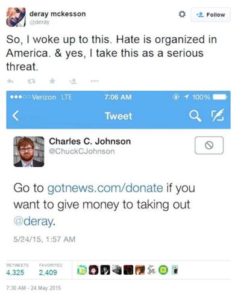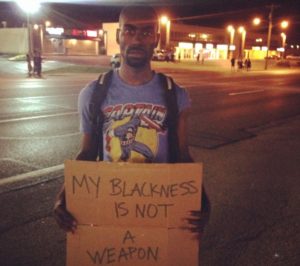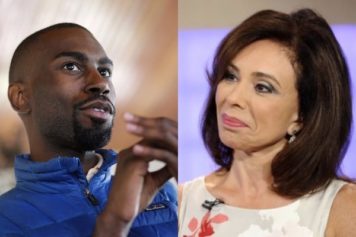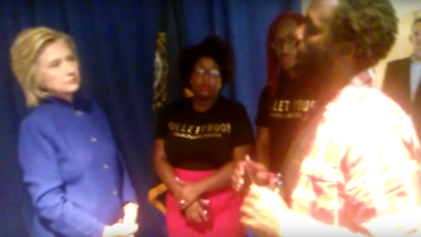Blogger Chuck Johnson is no stranger to controversy when it comes to the things he decides to post online but he found himself at odds with one of the largest social media platforms and a civil rights activist after he began collecting donations aimed at “taking out” activist DeRay McKesson.
Johnson insists that the language of the tweet was taken out of context but neither Twitter nor McKesson felt anything about the language was figurative.
“Go to gotnews.com/donate if you want to give money to taking out @deray,” he tweeted early in the morning on Sunday.
If you want to go see the tweet for yourself, you’ll have to settle for the screenshots floating around as his account as since been suspended after McKesson caught sight of it.
“So, I woke up to this,” McKesson tweeted along with a screenshot of Johnson’s tweet. “Hate is organized in America. & yes, I take this as a serious threat.”
It is likely that McKesson reported the tweet that ultimately led to the suspension of Johnson’s account. Either way, Johnson says everybody has been misinterpreting his tweet.
In an email to Re/code, he says that he was “speaking metaphorically about exposing DeRay in much the same way Slate was speaking metaphorically about ‘taking out’ a Supreme Court justice.”
In other words, he insists that the funds were being raised for the sake of doing research about McKesson, an activist that he believes has been the “leader of the anti-cop” narrative that is thriving in the “inner city black community.”
It’s a sign that Johnson doesn’t understand that the tensions between law enforcement and the Black community extend far back to a time when McKesson wasn’t even born. But Johnson says he was prepared for the backlash and ultimately blamed Twitter for not being respectful of true journalism.
“Of course I knew this would happen,” Johnson continued, according to The Wrap. “Twitter has a serious problem with investigative journalism that breaks the mold.”

“For someone who considers himself a journalist, I firmly believe that he understands the power of his words,” McKesson said during an appearance on CNN. “If I got on any media outlet and said something to the effect of ‘take out the police,’ nobody would think that I was talking about an expose. It would function as a physical threat.”
He added that Johnson’s tweet was not an example of “free speech,” instead, he charged, it was “hate speech.”
For those who know anything about Johnson’s career, it wouldn’t be difficult to believe that his choice of words was rooted in the knowledge that they would be at the center of an uproar.
Last year, Johnson published what he believed was the true identity of the young woman who told Rolling Stone that she had been raped on the University of Virginia campus. He sparked outrage yet again when he published the addresses of two New York Times reporters that were based in Ferguson, Mo.
Both instances marked moves in his career that are considered to be major violations of the basics of media ethics.


